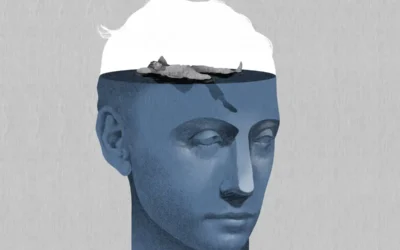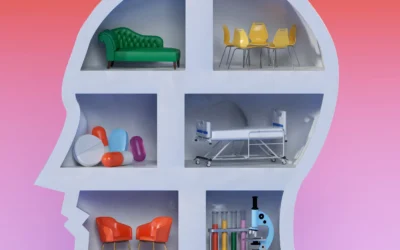Podcast: Play in new window | Download (Duration: 1:14:47 — 51.4MB)
Subscribe: Apple Podcasts | Spotify | Amazon Music
Learn 3 distinct features that make one vulnerable to addiction and understand the varied dynamics through the lens of attachment and emotional regulation.
In today’s episode, Dr. Ann Kelley interviews two experts in the field of substance abuse treatment, Brad Kennedy and Dr. Vanessa Kennedy from Driftwood Recovery Center. They discuss their attachment-based perspective on what addiction is, how it develops, how understanding our attachment styles critically impacts the treatment and recovery process. Learn what they have to say about stigma, shame, self-destruction, and check out the incredible resources included in today’s topic.
Addiction affects almost every one of us. There are many opinions and controversies in the field of what causes it, what helps and how to address it.
When viewed through the lens of attachment, we are able to understand why we have developed unhealthy coping mechanisms and how they no longer serve us. This understanding is essential to treat the issues underlying our destructive behaviors as well as how we connect with others.
By getting curious about our behaviors and understanding why we do what we do, we can begin shifting our narrative from one of shame to one of compassion. This compassionate narrative combined with an attachment-based, integrative treatment approach, and most importantly, connection with others, are essential to co-creating a path to recovery and ultimately, the version of ourselves we wish to become.
Brad Kennedy, MRC, CRC
Vice President, Executive Director of Driftwood Recovery Center
Brad has been a national leader in developing innovative programs to help individuals recover from addiction and mental health issues for the past twenty years. He comes to us from the Menninger Clinic and is the Founding Board Member of the Association for Community Integration Programs (A4CIP). The A4CIP is an organization that assembles experts to share perspectives on how to help individuals with mental illness and addiction live healthy lives and integrate back into society.
Brad’s is now the Executive Director at the Driftwood Recovery Center, where he and the team focus on evidence-based techniques and integrative treatment. He has a special passion for community integration and aiding individuals in identifying their values and leading a meaningful life after treatment and through their recovery.
Vanessa S. Kennedy, PhD
Director of Psychology at Driftwood Recovery Center
Dr. Vanessa Kennedy has over a decade of experience working with the Menninger Clinic, one of the nation’s top psychiatric hospitals. As a Program Manager and Senior Psychologist, she treats people suffering from addiction and a variety of serious mental health issues.
Dr. Kennedy specializes in psychological testing and diagnostic formulations. She has a passion for helping individuals and their families make sense of the psychological underpinnings of addiction and other behaviors. As the Driftwood Director of Psychology, she provides psychological assessments to clarify diagnosis, screen for cognitive issues, and provide a clearer road map for treatment that substances and medications may have obscured.
In this episode of Therapist Uncensored,
What is the definition of addiction?
- The “real world” definition of addiction is various behaviors that interfere in your life that might keep you from really living your values.
Addiction is relevant to everyone.
- What addiction includes
- Plus, what behaviors do you regularly and habitually engage in (coffee drinking, checking your phone, etc.)? Are they disrupting your life?
How do you know when a habit has become a problem, and what do you do about it?
- It starts with awareness of our habits and their impact. Am I using it to manipulate my mood? Take a curious, non-judgmental stance and continue to ask ourselves why we like and do the things we do.
Being curious isn’t as easy as it sounds.
- We find reasons to defend our addictions, especially if it’s something we want to protect. We’re doing these things because it’s helping us cope with something inside our body that we may not want to about.
- Are we open to hearing feedback from those in our lives?
- What are we defending against, and why?
To learn more about the power of curiosity, check out TU91!
- How do we distinguish between compulsive behavior and addiction?Is the behavior interfering with who you want to be?
- What response do we have to changing or stopping the behavior?
- compulsive, defensive response vs creative, collaborative response
- The treatment for compulsive, habitual patterns is based on being creative and collaborative, not defensive and avoidant.
Addiction as a problem of connection
- As addiction escalates, deception and isolation increase. We become more and more disconnected from the people that we love and care about and the things that we enjoy
- Addressing the underlying sense of alienation that comes with addiction is key to getting people to reconnect with their values.
Chemical dependency
- Addiction involves different spheres of our functioning, from physiological to feelings and emotions.
Attachment, Trauma, & Addiction
- There are 3 distinctive factors that create tendencies toward addiction: genetic predisposition, social mindset, and pain/trauma. Trauma includes painful experiences like ostracization and rejection in relationships.
- By looking at addiction with curiosity and non-judgment, we can understand how it develops from a place of compassion rather than shame.
- Addiction becomes a band-aid for the pain caused by early trauma wounds rather than a way of hurting others.
- Shifting the narrative from “what’s wrong with you that you can’t stop this behavior” to “what happened to you that you’re trying to numb” creates a path out of shame and into compassionate understanding.
- We think about trauma in terms of things that we are consciously aware of, but it often happens prior to this developmentally.
- When infants are faced with a trauma that they can’t escape or stop, and they have no agency, one very healthy methods of coping is learning how to disconnect.
- Understanding attachment styles explains why we gravitate toward numbing to cope. It also shows us how those once necessary coping skills no longer serve us.
Understanding Agency
- Treating addiction is about re-establishing agency, or the ability to initiate change. This allows you to regain the power to move toward healthier patterns.
- Acceptance & Commitment
Epistemic Mistrust
- Epistemic mistrust is the idea that your brain, primary attachments, and social connections have somehow failed you.
- Connection seems irrational, even though this may be the solution.
- Epistemic mistrust creates a hopeless state that has created isolation.
Stepping Out of Isolation
- If your core feeling is that attachment is not a safe experience, reaching out for help is scary. We believe we are in control of our addiction, but the reality is we feel very out of control.
- Trading the predictability and illusion of control that addiction creates takes an immense amount of courage and deserves to be honored and respected.
Needing help is really about dealing with underlying pain, trauma, and disconnect. Healing happens with connection. You cannot do it alone.
Addiction & The Family
- Caring for a loved one struggling with addiction is one of the most challenging roles.
- The desire to protect them can put us in a dysregulated state, causing us to react in ways that produce feelings of shame and of being forced to commit to something. On the other hand, being close to the situation makes it difficult to see things objectively.
- Many of our behaviors are fueled by fear.
- Loving someone who is struggling with addiction is hard and painful. You cannot face it alone. Reach out for support. There are resources for you too.
Essential Ingredients of Comprehensive Addiction Treatment
- Establishing connections with individuals in a safe and secure healing community allows true thoughts and feelings to be exposed.
- Compliance is not the same as change.
- Change should be difficult. Your treatment environment should help you think of your blind spots.
- Treatment is comprised of evidence-based practices that have been proven to be helpful.
- A good treatment experience should teach you how to live a recovery lifestyle.
- Look for a program or treatment approach that addresses underlying mental health issues.
- Attending a recovery program is a helpful and integral part of treatment and recovery.
- Treatment isn’t just focused on the individual. Bringing in the reality of the situation and context of their life leads to a deeper understanding of what potential triggers or barriers to recovery may be.
- Not staying connected makes you more susceptible to relapse
What is your attachment style?
- What is underlying your fear, avoidance or preoccupation and anxiety around connection?
- Understanding an individual’s style of connection and interaction sets the foundation for engagement in treatment.
- Group settings create a level of connection that fosters vulnerability. You can rely on other people who are going through the same recovery process to point out your patterns of behavior.
- Allowing others to see you aids in and is essential to getting the most out of recovery.
- Knowing your own attachment style creates an awareness of our defenses that may hinder the recovery process.
- “Forewarned is forearmed”
Treatment Resources:
- The best treatment model is one that to works to understand you, your family system, your needs, and the outcome you want from treatment outside of abstinence.
- Being able to co-create a personal path to your recovery journey fuels the passion to recapture the person you want to be.
- Suggested questions to ask when inquiring about treatment.
- Overview of levels of care
- Specific treatment and support resources
IF THIS HAS MOTIVATED YOU SEEK SUPPORT OR MORE INFORMATION FOR YOU OR YOUR FAMILY, PLEASE CLICK HERE TO SEE THE EXTENSIVE LIST OF SUPPORT AND TREATMENT RESOURCES!













